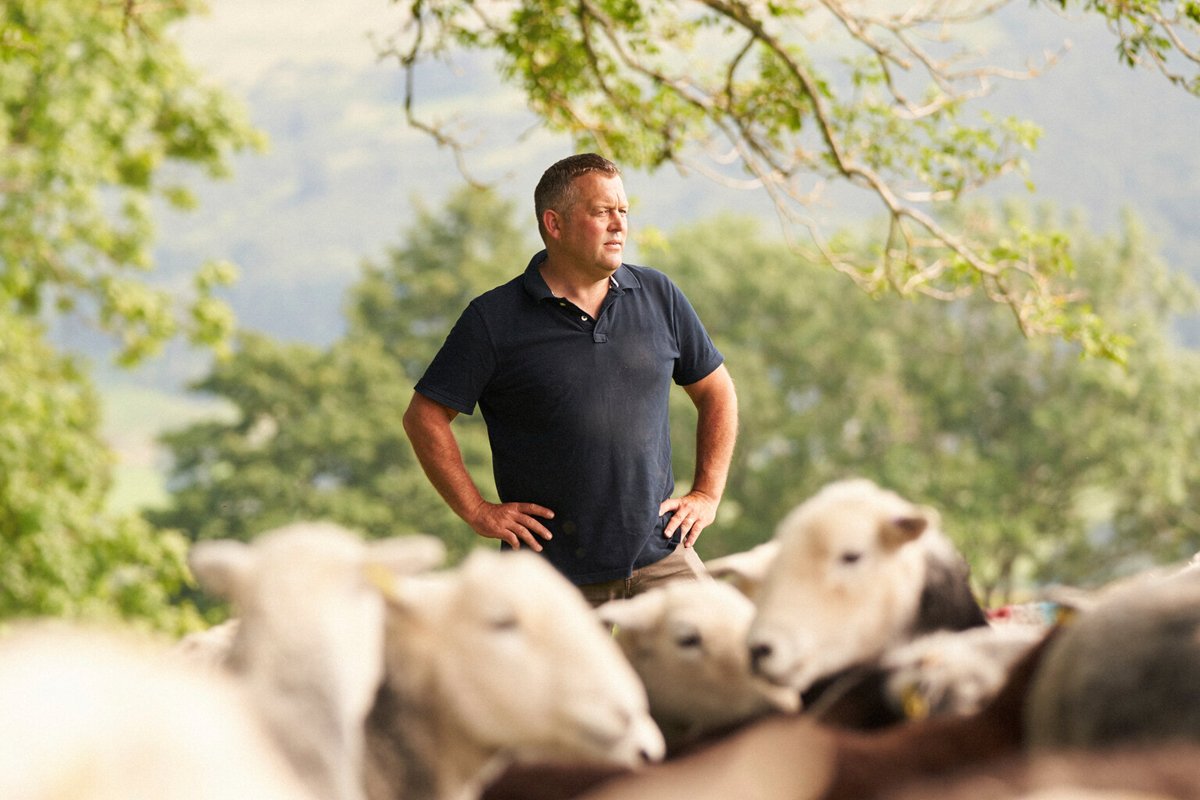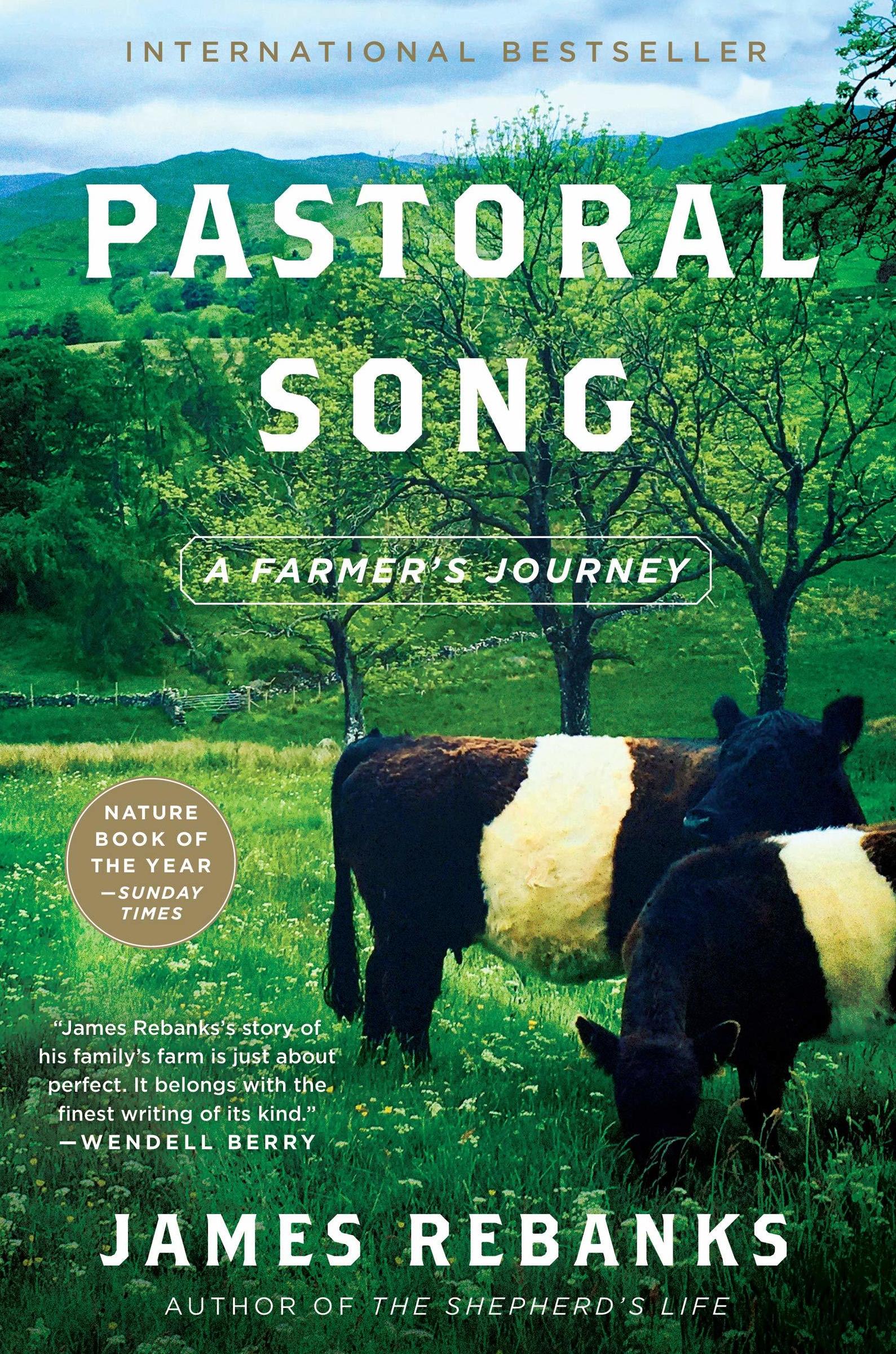“To cherish what remains of the Earth and to foster its renewal is our only legitimate hope of survival.”
Wendall Berry

I’ve read several books this year with strong environmental themes. The latest is Pastoral Song by James Rebanks, an eloquent recount of a British farmer’s attempt to turn his family farm into an environmentally friendly plot of land.
I usually read fiction, but was drawn to Pastoral Song in part because the great poet, novelist, farmer and environmentalist Wendell Berry has a blurb on the cover, saying the story “belongs with the finest writing of his kind.” I also was attracted to Rebanks’ story because of my deep respect for family farmers.
I was a Wisconsin small-town kid who grew up with farm kids as friends. I got to spend time on their farms and even joined 4-H to hang out with them. But while they had animals to show at fair, all I had were some pretty dreadful sewing projects. I soon learned sewing wasn’t my thing. I also got to know the dairy farmers of the area because my parents ran a John Deere store. I started working there as soon as I could push a broom or inventory a crate of machinery parts. My mother was a whiz at knowing where all the tens of thousands of items were located. When she was away and I had to help locate parts for the farmers, they always patiently helped me go through the implement books if I was stuck. They never showed impatience with this teenager, even though I’m sure they would have preferred my mom. I learned from my parents how difficult owning a small farm is, from just trying to make a living to the never-ending, back-breaking work. Our store was closed only on Sundays, but if a farmer rang us at home saying he was desperate for a replacement part, my dad always went in to help.
Rebanks comes from a long line of hard-working farmers, stretching out 600 years. He grew up watching his grandfather and father tend to the land based on old farming principles of rotating crops and using animals to help fertilize and eradicate weeds. Even though he studied at the University of Oxford, he eventually came back to the family farm. Pastoral Song chronicles how farms after World War II were swept up with the chemical industry’s push to use pesticides and fertilizer, both in England and the United States. Farmers, including his father, felt compelled to follow along. Production increased and weeds vanished. Then Rebanks noticed some strange things. Birds no longer followed the plow in the fields. Earthworms disappeared. He credits Rachel Carson’s environmental classic, “Silent Spring”, to opening his eyes. He slowly started realizing that farming didn’t have to be done at the expense of the environment. There had to be balance. Farmers and environmentalists needed to work together, not fight each other.
Rebanks’ writing is poetic, thoughtful and impassioned. His descriptions made me feel like I was on his farm in England’s Lakes District. He also made me think about how we consumers need to be responsible for making more environmental choices. I think I need to read his first book from 2015, The Shepherd’s Life: Modern Dispatches from an Ancient Landscape. He chronicles his life on the farm on Twitter @herdyshepherd1.
If you are looking for more compelling books with environmental themes, I also recommend these three titles:
The Book of Hope: A Survival Guide for Trying Times by Jane Goodall and Douglas Abrams. The world-famous primatologist and anthropologist shares her views on why hope is essential to save our planet.
The Music of Bees by Eileen Garvin. In this novel, three lost souls — a sad young widow, an angry paraplegic teenager, and an anxious young ex-con — find that honeybees provide the balm to heal their broken spirits and give them hope.
Once There Were Wolves by novelist Charlotte McConaghy. Inti Flynn is an expert on reintroducing wolves to rural areas to help heal the ecosystem. Her latest project is in the Scottish Highlands, where her work is resisted by the community that fears the predators will endanger their livestock and families. This well-done thriller also is an absorbing look at how environmentalists and farmers sometimes are at odds with each other.

Categories: Books and More
Tags: Books and More
